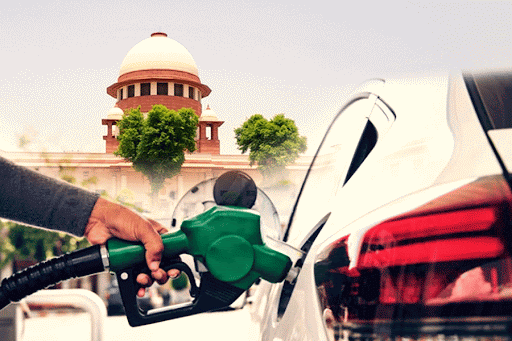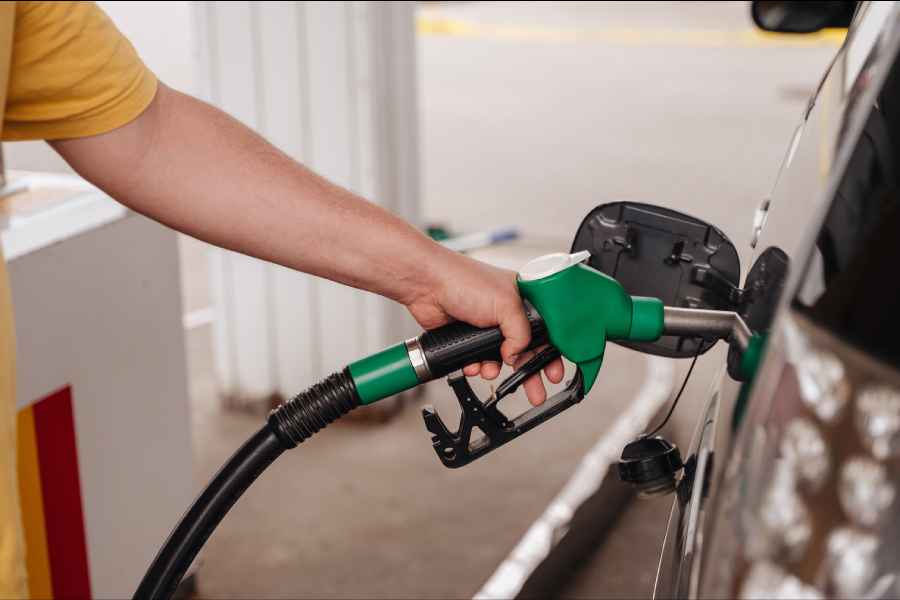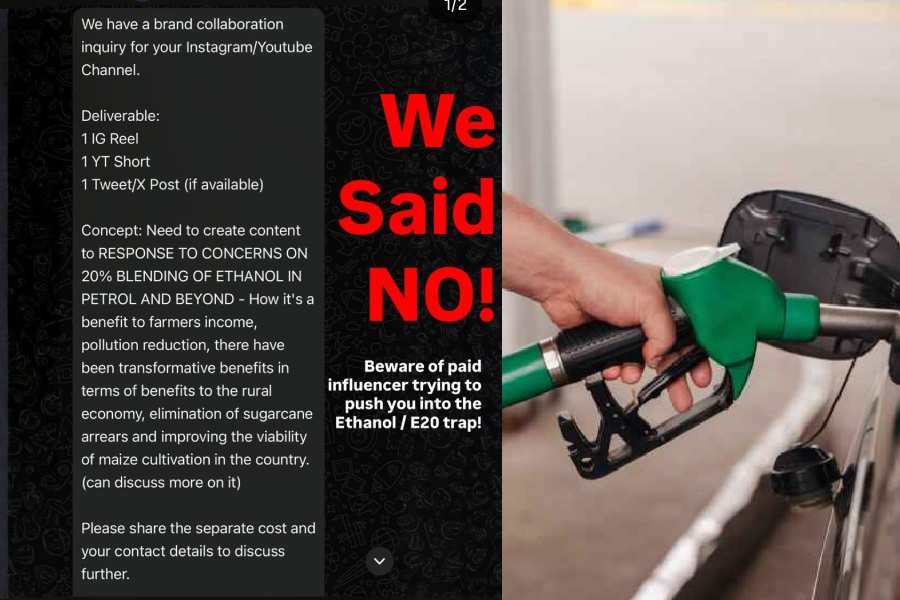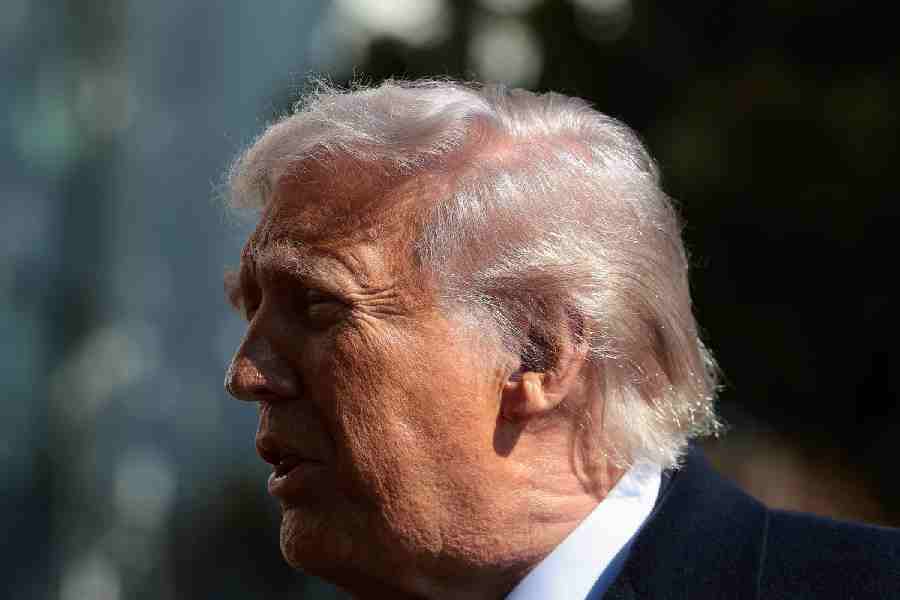The Supreme Court on Monday rejected a PIL which has challenged the nationwide rollout of 20 per cent ethanol-blended petrol (EBP-20), alleging millions of motorists were forced to use the fuel not designed for their vehicles.
A bench of Chief Justice BR Gavai and Justice K Vinod Chandran heard the matter.
Senior Advocate Shadan Farasat, appearing for the petitioner, argued that vehicles manufactured before April 2023 were not compatible with E20 fuel. Citing a 2021 NITI Aayog report, he said the think tank itself had raised concerns about the impact of older vehicles, fuel efficiency loss of up to 6%, and the absence of an option for ethanol-free (E0) or E10 petrol.
The Centre opposed the plea and claimed E20 fuel benefits sugarcane farmers.
Farasat clarified that the petitioner was not opposing ethanol blending per se but only sought the continued availability of E0 petrol for older vehicles. “Only vehicles manufactured after April 2023 are compliant with E20,” he said.
Attorney General R Venkataramani opposed the plea, calling the petitioner a “name-lender” and alleging the presence of a powerful lobby. He defended the policy, stressing that it benefits sugarcane farmers and saves foreign exchange. “Will people outside the country dictate what kind of fuel India should use?” the AG remarked.
After hearing the submissions, CJI Gavai pronounced the order: “Dismissed.”
The PIL, filed by advocate Akshay Malhotra, argued that forcing E20 petrol on incompatible vehicles—including BS-VI models less than two years old—violates owners’ fundamental rights. It said lack of awareness, fuel pump labelling, and advisories breach the right to informed consumer choice under the Consumer Protection Act, 2019.
The petition had sought directions for continued availability of E0 petrol, mandatory fuel pump labelling, consumer advisories, enforcement of consumer norms, and a nationwide study on E20’s impact on older vehicles.













